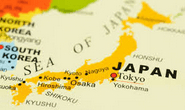Government/Policy

November 4, 2021
Japan Seeks New Steel Deal After EU Gets Section 232 Relief
Written by Michael Cowden
Japan wants a waiver from the current Section 232 regime following the U.S. negotiating a tariff-rate quota (TRQ) with the European Union.
The issue came up during a virtual meeting between U.S. Trade Representative Katherine Tai and Koichi Hagiuda, head of Japan’s Ministry of Economy, Trade and Industry, on Thursday, Nov. 4.
![]() Minister Hagiuda “strongly requested resolution of the issue of additional duties on Japanese steel and aluminum products based on Section 232,” according to a statement from the ministry.
Minister Hagiuda “strongly requested resolution of the issue of additional duties on Japanese steel and aluminum products based on Section 232,” according to a statement from the ministry.
Japan, a key U.S. ally in East Asia, has been subject to Section 232 national security tariffs of 25% on steel and 10% on aluminum since 2018.
The country has received scores of exemptions on the steel side. But, like the EU, has been irritated by the idea that its steel and aluminum pose a national security threat to the U.S.
Japan is a key source of certain high-quality, niche steel products for the U.S., especially for the automotive sector. But Japan is not a large source of imports by volume.
The U.S. imported 35,427.5 tonnes of flat-rolled steel from Japan in October of this year, according to Commerce Department license data. That’s up 9.8% from 32,268.9 tonnes in September, but down 4.7% from 37,183.4 tonnes in October of 2020.
Here is one way to put those figures in context: Canada, whose manufacturing sector is closely tied to the U.S., exported 301,407.8 tonnes of flat steel products to the U.S. in October alone.
Background
The U.S. and the EU agreed to a TRQ over the weekend. It will go into effect on Jan. 1, 2022. The deal will see 3.6 million short tons (3.3 million metric tonnes) allowed into the U.S. duty free before a 25% tariff kicks in.
That deal will also see that tonnage divvied up on a quarterly basis to prevent import surges at the beginning of the year. It also grandfathers in approximately 1.1 million tons of material that had been exempted from Section 232 tariffs already.
A TRQ, also known as a “soft quota,” allows imports below a quota ceiling to come into the U.S. without duties. After that quota limit is reached, imports can still come in – but they are subject to a 25% tariff. That is different from the absolute, or “hard”, quota the nations such as South Korea and Brazil are subject to under Section 232.
It is not clear whether the deal between the U.S. and the EU will serve as a template for agreements with other nations.
Other U.S. allies such as the UK, which is subject to the 25% tariff, and South Korea, which is subject to a hard quota, are also likely to seek an easing of Section 232 restrictions on their steel and aluminum.
By Michael Cowden, Michael@SteelMarketUpdate.com







